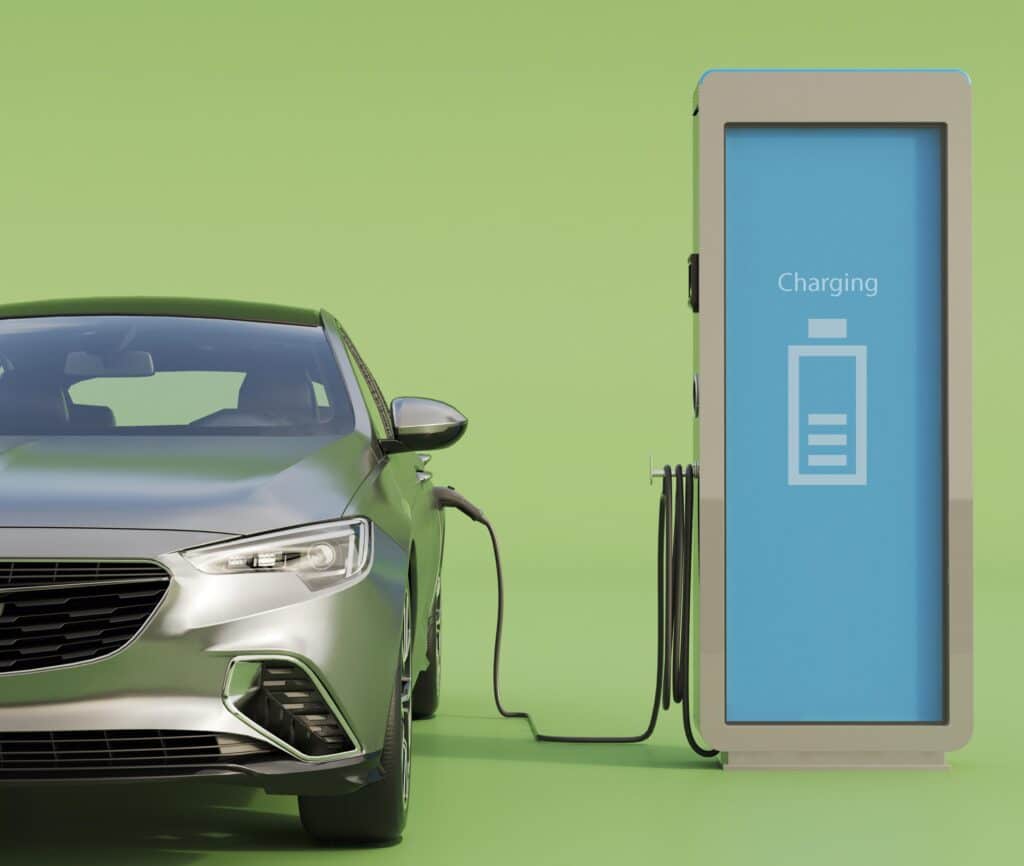Revolutionizing EV Battery Testing with AI
Unlocking Efficiency and Cost Savings in Electric Vehicle Battery Testing In today’s rapidly evolving automotive landscape, the transition to electric vehicles (EVs) has accelerated, driven by the imperative to reduce carbon emissions and dependence on fossil fuels. As carmakers strive to meet consumer demands for longer range, enhanced safety, and faster charging times, the spotlight […]

Unlocking Efficiency and Cost Savings in Electric Vehicle Battery Testing
In today’s rapidly evolving automotive landscape, the transition to electric vehicles (EVs) has accelerated, driven by the imperative to reduce carbon emissions and dependence on fossil fuels. As carmakers strive to meet consumer demands for longer range, enhanced safety, and faster charging times, the spotlight intensifies on the most critical component of EVs: batteries.
Competitive pressures have propelled carmakers into investing substantial resources into battery testing, recognizing that the performance and reliability of these power sources are paramount.
The Crucial Role of Batteries in the EV Revolution
The complexity inherent in understanding and modeling batteries cannot be overstated. Real-world chemical reactions defy precise replication in laboratory settings, posing significant challenges for engineers tasked with developing or selecting the optimal battery technology.
These engineers embark on exhaustive testing regimes that consume not only considerable time but also millions of dollars. Months, if not years, may elapse before a comprehensive assessment of battery performance and safety is attained.
Given the criticality of battery performance, test engineers often adopt a cautious approach, subjecting batteries to extensive validation protocols. However, this conservative stance can lead to overly intricate and resource-intensive test plans.
Traditional factorial test designs, which explore every possible combination of input parameters, may yield redundant data, contributing little to the understanding of battery behavior.
Similarly, reliance on experience-based test planning may result in inefficiencies, prolonging testing timelines and inflating costs. Studies indicate that these conventional approaches could be up to five times costlier and take twice as long as necessary due to the intricate nature of battery systems.
In this landscape of escalating demands and complex challenges, artificial intelligence (AI) and machine learning emerge as transformative tools for optimizing EV battery testing. By harnessing the power of data-driven learning, test engineers gain unprecedented insights into the intricate behavioral dynamics of batteries.
AI algorithms trained on real-world test data offer a reliable and efficient solution to the enigmatic physics of batteries that elude traditional simulation and planning methodologies.
The integration of AI-powered EV battery modeling revolutionizes the testing paradigm, offering several
compelling advantages. Firstly, AI algorithms possess the capacity to rapidly discern nuanced patterns and relationships within vast datasets, providing invaluable insights into battery performance characteristics.

This capability enables engineers to streamline test protocols, eliminating redundant experiments and accelerating the pace of innovation. Furthermore, AI-driven modeling facilitates adaptive testing strategies, wherein test plans evolve dynamically in response to emerging insights.
By continuously learning from ongoing test data, AI algorithms iteratively refine their predictive accuracy, enabling engineers to make informed decisions in real-time.
This iterative feedback loop enhances the efficiency and efficacy of battery testing, driving incremental improvements in performance and safety.
Moreover, AI-powered modeling transcends the limitations of traditional deterministic approaches, accommodating the inherent variability and complexity of real-world battery systems.
Machine learning algorithms excel in extrapolating insights from diverse datasets, encompassing variations in environmental conditions, usage patterns, and battery chemistry.
This holistic understanding empowers engineers to develop robust battery technologies resilient to diverse operating conditions, enhancing reliability and longevity.
The transformative potential of AI and machine learning extends beyond battery testing to encompass the entire EV ecosystem.
Car makers leverage AI-driven insights to inform strategic decisions, from battery selection and optimization to vehicle design and fleet management. By harnessing the predictive power of AI, car makers can anticipate market trends, optimize resource allocation, and accelerate innovation cycles, positioning themselves at the forefront of the EV revolution.
The convergence of competitive pressures, technological advancements, and sustainability imperatives has propelled car makers into a new era of innovation in EV battery testing. Recognizing the pivotal role of batteries in shaping the future of transportation, car makers are embracing AI and machine learning as indispensable tools for unlocking the full potential of electric vehicles.
By leveraging AI-powered modeling, car makers can navigate the complexities of battery systems with unprecedented precision and agility, ushering in a new era of sustainable mobility.


